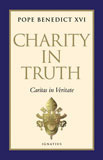"To have true justice it is necessary to arrive at gratuitousness and solidarity."
Pope Benedict XVI remarks directly upon the global economic crisis in an address given this past Saturday to participants in the annual conference of the Centesimus Annus Foundation:
As you noted in your addresses, in the difficult situation we are experiencing, we are unfortunately witnessing a crisis in work and in the economy, which is accompanied by a crisis in the family: the conflicts of couples, generational conflicts, conflicts occasioned between the times of the family and of work, occupational crises, create a complex situation of unease that influences social living itself.
A new harmonious synthesis between the family and work is therefore necessary, and the Social Doctrine of the Church can offer a valuable contribution. In the encyclical Caritas in Veritate I wished to highlight that the family model of the logic of love, of gratitude, and of gift goes together with a universal dimension. Commutative justice -- "give to have" -- and distributive justice -- "give to owe" – are not sufficient in social living. To have true justice it is necessary to arrive at gratuitousness and solidarity. "Solidarity is first and foremost a sense of responsibility on the part of everyone with regard to everyone, and it cannot therefore be merely delegated to the State. While in the past it was possible to argue that justice had to come first and gratuitousness could follow afterwards, as a complement, today it is clear that without gratuitousness, there can be no justice in the first place. (...) Charity in truth, in this case, requires that shape and structure be given to those types of economic initiative which, without rejecting profit, aim at a higher goal than the mere logic of the exchange of equivalents, of profit as an end in itself" (No. 38).
"The market of gratuitousness does not exist, and attitudes of gratuitousness cannot be established by law. Yet both the market and politics need individuals who are open to reciprocal gift" (No. 39). It is not the duty of the Church to define the ways to address the present crisis. However, Christians have the duty to denounce evils, to attest to and to keep alive the values on which the dignity of the person is founded, and to promote those ways of solidarity that foster the common good, so that humanity will become the family of God.
Read the entire address on ZENIT.
Encyclicals by Pope Benedict XVI:



Carl E. Olson's Blog
- Carl E. Olson's profile
- 20 followers



